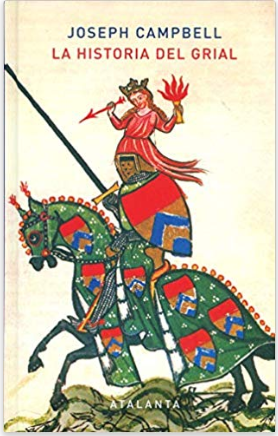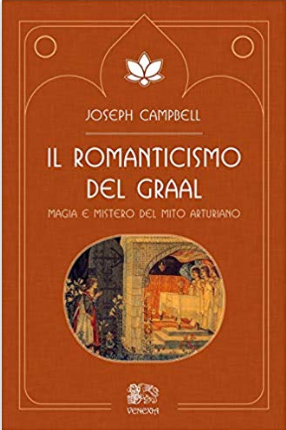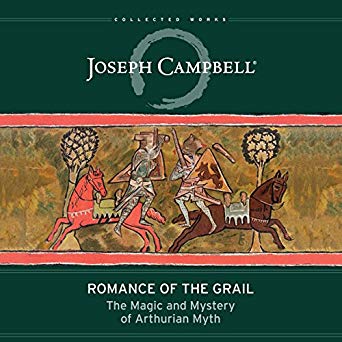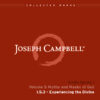
Romance of the Grail: The Magic and Mystery of Arthurian Myth
By Joseph Campbell
This title is part of the The Collected Works of Joseph Campbell series
Throughout his life, Joseph Campbell was deeply engaged in the study of the Grail Quests and Arthurian legends of the European Middle Ages. In this new volume of the Collected Works of Joseph Campbell, editor Evans Lansing Smith collects Campbell’s writings and lectures on Arthurian legends, including his never-before-published master’s thesis on Arthurian myth, “A Study of the Dolorous Stroke.” Campbell’s writing captures the incredible stories of such figures as Merlin, Gawain, and Guinevere as well as the larger patterns and meanings revealed in these myths. Merlin’s death and Arthur receiving Excalibur from the Lady of the Lake, for example, are not just vibrant stories but also central to the mythologist’s thinking.
The Arthurian myths opened the world of comparative mythology to Campbell, turning his attention to the Near and Far Eastern roots of myth. Calling the Arthurian romances the world’s first “secular mythology,” Campbell found metaphors in them for human stages of growth, development, and psychology. The myths exemplify the kind of love Campbell called amor, in which individuals become more fully themselves through connection. Campbell’s infectious delight in his discoveries makes this volume essential for anyone intrigued by the stories we tell—and the stories behind them.
Thus he rides forth, letting his horse take him where it will, with the reins loose. If we take the horse and rider as symbolic, respectively, of instinctive nature and controlling mind, this suggests a trust, on Parzival’s part, in the life force itself as an adequate guide. [share]
You might say the secret problem of the quest is to heal the Grail King and to achieve his role, but without the wound—that is to say, to become the supporter of the spiritual principles, without the emasculating, literally sterilizing wound. [share]
Marriage took place in the psyche first, and the physical realization of their love [Parzival and Condwiramurs] was the fulfillment of a spiritual marriage; it did not work the there way around. No priest confirmed the marriage. It was confirmed in love and was itself the sacrament of love. And neither lust nor fear, but courage and compassion, were its motivations... [share]
Through your own integrity, you evoke your destiny, which is a destiny that never existed before. [share]
Filter:
Sort:









